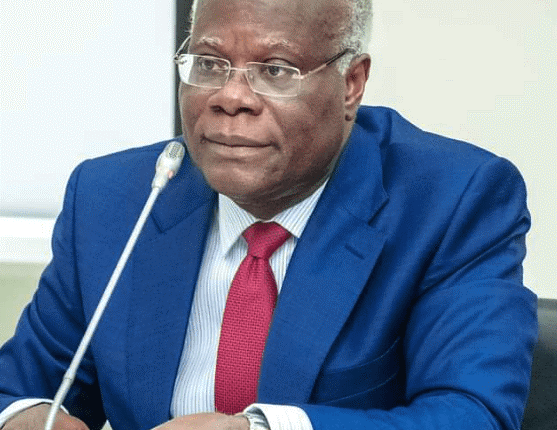The Ministry of Trade and Industry has hinted at a new business strategy that will simplify the operationalization of businesses in the country.
According to the Ministry, the strategy, when fully implemented, will scale up the growth agenda of both the public and private sectors.
The sector Minister, K.T. Hammond, made this disclosure at the Ghana Mutual Prosperity Dialogues held under the theme: ‘Investment, Growth, and Jobs’ in Accra.
“We have realized in the country that we are complicated. That is why we have tried to demystify our business environment. Very soon, our ministry, with the help of the Ministry of Finance, is going to roll out a name and a similar form of business revenue strategy. Because we are aware that businesses and your businesses are only as good as the institutional and regulatory framework that underpins them. We have about six different types of vehicles assembling plants.”
Speaking on behalf of the business community, the Chief Executive Officer of the Association of Ghana Industries (AGI), Seth Twum Akwaboah, impressed upon the government to ensure that businesses continue to enjoy a congenial environment.
“Our private sector and, for that matter, investments in Ghana basically need a politically stable environment, which is critical for any serious long-term plan. In this regard, we expect the government to create a business environment for businesses to thrive.”
He pledged the business community’s support to offer expertise on the problems faced in the private sector.
“We will continue to offer our expert advice on some of the challenges we face as a country. The private sector and investments in Ghana must enjoy a politically stable environment, which is critical for any serious long-term economy. To this end, we expect the government to create an enabling, resilient environment for businesses to survive. In creating that environment, we don’t expect to see several layers of regulations that only add to the cost of doing business. What we think is lacking is the enforcement of some of the business regulations to ensure fair trade practices. For example, we continue to see a multiplicity of taxes and attempts to show up in our domestic revenue.”
He added, “Perhaps all we need is to enforce compliance with the already existing tax policies and possibly block the leakages in our revenue organization. Today, a number of companies are complaining about substandard products entering our markets and sometimes not paying the right duties and taxes, competing unfairly with the local producers. Many of us gathered here today are anxious to see investments that will help develop local production capacity, enough to produce basic essential products that we consume. Across the world today, almost every country is rolling out a form of economic growth strategy.”
The Ghana Mutual Prosperity Dialogues framework is a public-private partnership aimed at attracting foreign and local investments while promoting shared growth.
The GMPD’s primary objective is to identify challenges in the investment climate and provide solutions to ensure a conducive environment is created for stakeholders.
It also aims to better understand the needs of the private sector and pragmatically remove constraints that hinder the ease of doing business in the country. Through engagement with the private sector at the industry level, the state aims to develop robust policies that align with the aspirations of different sectors.


Comments are closed.